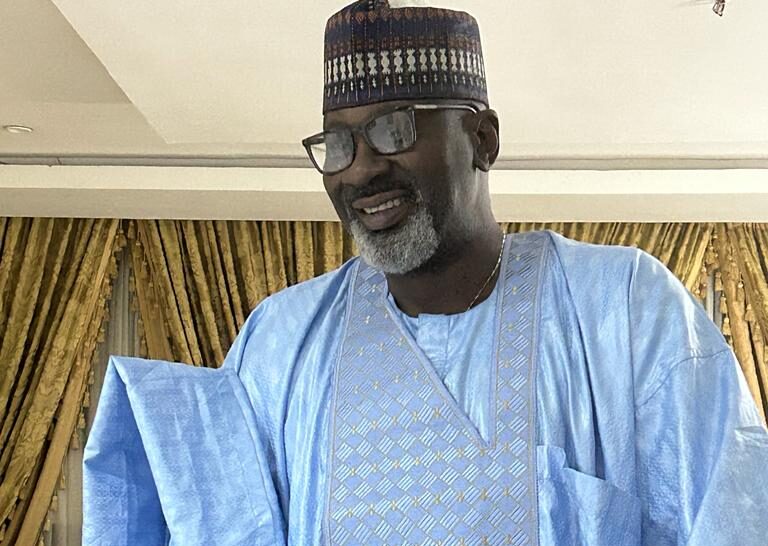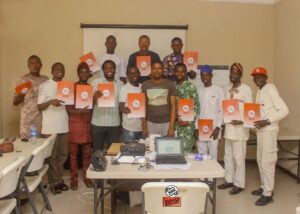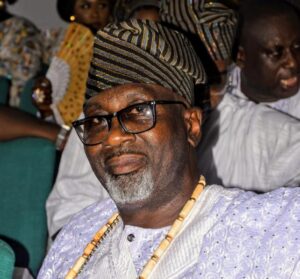AATSG enthusiastically recommends that Nigeria disregard the IMF’s projected low economic rating. By Abayomi Odunowo
The recent report by the International Monetary Fund (IMF) projecting Nigeria to drop from the first to the fourth largest economy in Africa has been met with criticism by the National Chairman and leadership of AATSG. The organization has called on Nigeria to reject the report, citing the need to rely more on data from domestically gathered statistics rather than foreign agencies.
According to AATSG, Nigeria became the largest economy in Africa in 2014 based on data collected by the National Bureau of Statistics (NBS), Nigeria’s main data repository. The organization emphasized that such domestically gathered information is likely to be more accurate and reliable than projections made by international organizations like the IMF.
While the IMF estimated Nigeria’s Gross Domestic Product (GDP) at $253 billion, placing it behind countries like South Africa, Egypt, and Algeria, AATSG remains confident in Nigeria’s economic strength and potential for growth. The organization believes that Nigeria’s economy is resilient and has the potential to maintain its position as a leading economy in Africa.
The National Bureau of Statistics (NBS) plays a crucial role in accurately assessing and representing the economic landscape of Nigeria. Without the diligent work of the NBS in rebasing and recalculating Nigeria’s economy, the country would have continued to be underestimated and undervalued on the global stage. It was the NBS’s efforts that shed light on the true economic potential and status of Nigeria, positioning it as Africa’s largest economy.
The perception of Nigeria as Africa’s third-largest economy was a misrepresentation that hindered the country’s growth and development. Thanks to the NBS, Nigeria was able to showcase its true economic might and potential to the world. This reevaluation has allowed Nigeria to attract more investment, forge stronger trade partnerships, and assert its position as a key player in the global economy.
While external entities like the IMF and World Bank may offer their assessments and projections, it is essential for Nigerians to trust in the expertise and integrity of the NBS. The NBS provides an accurate and unbiased perspective on Nigeria’s economic performance, ensuring that the country’s true standing is recognized and respected internationally. It is time for Nigerians to embrace this reality and reject the negative Western propaganda that seeks to undermine their achievements.
The recent statement by the Asiwaju Ahmed Tinubu Support group (AATSG) raises important questions about the credibility of international organizations such as the International Monetary Fund (IMF). The IMF’s projection of a 3 percent GDP growth for Nigeria was surpassed by the actual quarterly growth of 3.4 percent, indicating a potential underestimation of Nigeria’s economic potential.
AATSG’s call for Nigeria to assert itself and recognize its economic progress is reminiscent of the words of General Murtala Muhammed, who declared that “Africa has come of age” in 1976. Indeed, Nigeria’s economy is on an upward trajectory, with promising developments such as the upcoming launch of the Port Harcourt refinery and the Dangote facility.
Furthermore, Nigeria’s reduced reliance on fuel importation and increased local refining capacity demonstrate the country’s commitment to economic self-sufficiency. The shift towards domestic refining will not only boost the economy but also reduce the financial burden of floating the Naira.
In today’s ever-changing economic landscape, it is crucial for Nigerians to rely on accurate statistics and projections to make informed decisions about their financial future. Asiwaju Ahmed Tinubu Support Group (AATSG) recently stated that as long as Nigeria continues to implement the current Renewed Hope policies, the economy has the potential to move up. AATSG advised that Nigerians should place more trust in the National Bureau of Statistics (NBS) for economic data and projections rather than relying solely on international organizations like the International Monetary Fund (IMF).
The IMF’s track record for accurately forecasting economic recessions has been less than stellar, with several scandals surfacing regarding their poor predictions. This raises concerns about the reliability of their assessments on Nigeria’s economy. On the other hand, the NBS has consistently provided more accurate and reliable data on the country’s economic performance.
Nigeria, once the largest economy in Africa, has faced challenges in recent years due to policy reforms initiated by President Bola Tinubu, including the end of the subsidy regime and the floating of the Naira. These changes have led to currency devaluations and economic instability. However, there have been signs of improvement, with the local currency beginning to rebound.
By following the Renewed Hope policies and trusting in the data provided by the NBS, Nigerians can make more informed decisions about their financial future.
In conclusion, it is essential for Nigeria to prioritize the use of locally sourced data to assess its economic performance and prospects accurately. By relying on internally gathered statistics, Nigeria can better understand its economic trends and formulate effective strategies for sustainable growth and development. Nigerians should heed the advice of AATSG and place more trust in the NBS for economic data and projections. By following the Renewed Hope policies and utilizing accurate information, Nigeria’s economy has the potential to overcome its challenges and move towards a brighter future. it is essential for Nigeria to prioritize the use of locally sourced data to assess its economic performance and prospects accurately. By relying on internally gathered statistics, Nigeria can better understand its economic trends and formulate effective strategies for sustainable growth and development.








